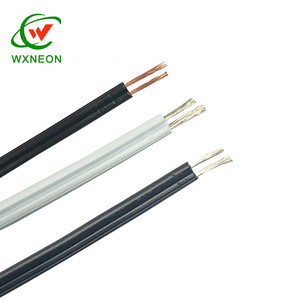
All categories
Featured selections
Trade Assurance
Buyer Central
Help Center
Get the app
Become a supplier

(7218 products available)
































A wire spool is a form that stores wire or cable. In general, it is in a cylindrical shape and comes with a round base. Spools have several make usages. They are often used to store threads, tapes, wires, or other flexible materials. The wire itself is often wrapped around the spool in circles. Wire spools are also called wire reels or wire holders.
Wire spools can be made with different materials including plastic and metal, the latter being more durable. Various industries use metal spools for wires, including electrical, telecommunications, fiber optics, manufacturing industry, and packaging industry, to name a few. Here are some common types:
Jumbo Metal Spool:
This refers to a large size metal spool often used for industrial applications. It is usually heavy and used to store large quantity wires. Usually, a base and two side plates make up the spools. Aluminium and steel are common materials. It is built to endure physically demanding settings, and high weights are generally associated with it.
Flange Spool:
This is a type of wire spool that possesses flanges at both ends. The flanges are circular discs that are perpendicular to the axis of the spool and project outward from the spool core. The flanges provide guidance for the wire or cable as it is wound onto or unwound from the spool. It prevents tangling and helps maintain organization. The flange can be made with different materials. Typically, it comes in plastic or metal.
Plastic Spool with Metal Core:
This consists of having a metal core with plastic around it. The combination of plastic and metal cores works together to provide a sturdy holder that can be used for years. The lightweight of plastics makes it easy to handle the metal spools. Nevertheless, it is important to note that the metal core with plastic exterior is common for fiber optic cable wire.
Specifications of metal wire spool holders can vary depending on the specific type and designed purpose. The following list includes common specifications of metal spool holders for wires.
To ensure long-lasting service and quality performance, the spools for wires need to be maintained. Following are some maintenance instructions for a metal wire spool holder.
Spools have application in various industries depending on the type of wire and nature of activities involved. Here are some of the usages of metal spools for wires in different industries.
When choosing wire spools or wire holders for reels, it is essential to opt for the ones that have a sturdy build. Selecting spools made from high-quality material will ensure that they are strong enough to hold wires of any size.
Additionally, buyers should purchase spools that have a compatible size with the wire gauge. Doing this will ensure easy storage as well as hassle-free retrieval whenever the wire is needed. It is also important to look for spools that have built-in features like stacking grooves, notches, and snag-free filament channels. Such spools will provide additional benefits to end-users.
Moreover, it will be helpful to purchase wire spools that come in different colors and can be used for various applications. Customers would prefer spools that can easily be identified or distinguish the type of wire.
Customers will appreciate spools with ergonomic designs and easy-to-handle features. Ergonomic spools provide comfort during usage and prevent fatigue, especially for spooling tasks that take a long time. Additionally, to save money, buyers should purchase spools that have durable construction. Such construction can withstand frequent use and harsh environments, thus preventing frequent replacement.
Q1: What are the latest trends in metal wire spool design?
A1: One trend is the use of spools with more grooves to provide better organization for wires of different sizes. Another is the move toward eco-friendly materials. Also, as technology advances, metal wire spools are becoming more advanced, such as with RFID technology, which tracks wire usage. Furthermore, the diameter of wire spools is increasing to accommodate heavier wires and longer lengths.
Q2: What are the hassles businesses face when sourcing wire spools?
A2: Finding spools that meet specific size and capacity requirements can be challenging. Suppliers may have limited stocks of spools for rare wire sizes.
Additionally, wire spools must be compatible with the type of wire used, which is not always the case when shopping online. Purchasing spools in bulk may lead to overstocking and excess inventory.
Shipping costs can be high for bulky or heavy items like wire spools, disproportionately increasing the total cost of a small order.
Q3: What are the benefits of custom metal wire spools?
A3: Custom wire spools can have specific logo spooling to enhance brand recognition. Besides, when companies make their own wire spool designs, they can create products that will suit their customers' needs. This will help to shorten lead times and enhance product availability. In addition, custom spools can be made to anything from unique colors to specific sizes and configurations.